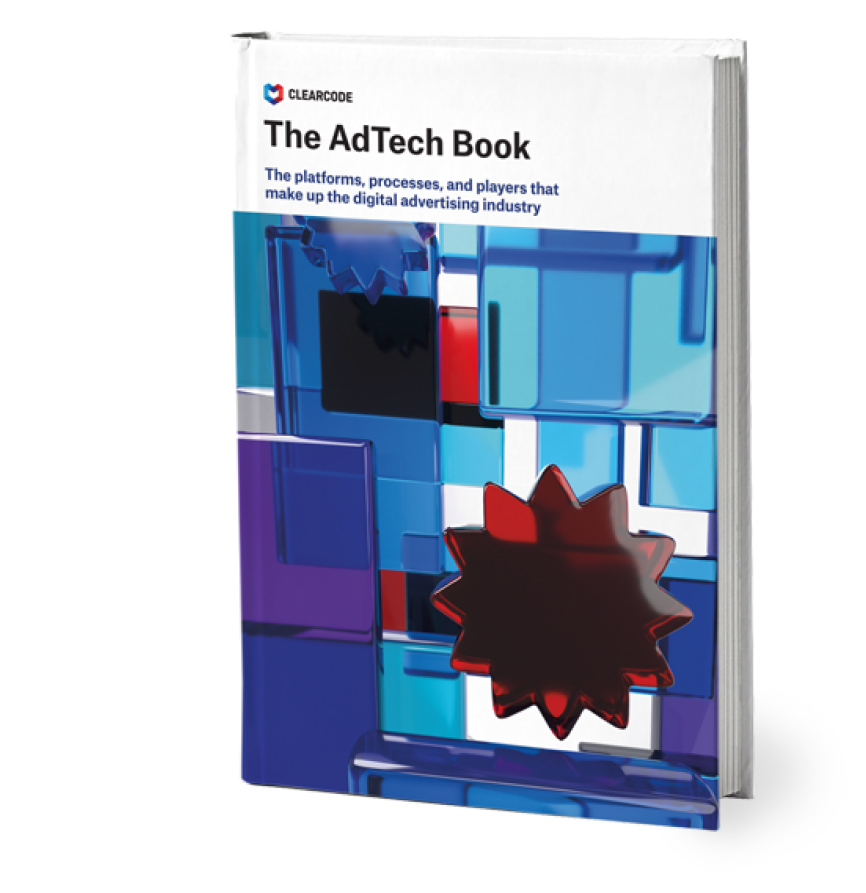At Clearcode, marketing technology isn’t just our work, it’s part of who we are.
Our technical teams build some of the most innovative solutions being produced in the MarTech space and our own marketing team uses the latest and greatest solutions available.
In recognition of this, MarTech Advisor editor-in-chief, Ankush Gupta sat down for a Q&A with Clearcode Head of Marketing, Marek Juszczyński.
1. Could you tell me a little about your background and how you came to be the Head of Marketing at Clearcode?
I’ve been involved in online marketing and the startup industry for around eight years and got started as a university student. Over time, I’ve discovered how much startup success depends on proper marketing and sales. While most of my startup colleagues focused on programming and development, I was more interested in online marketing.
I started with search engine marketing, which at that time was the most popular segment of online marketing. I spent countless hours learning SEO and PPC at every possible course and seminar I could find (there wasn’t much available in Poland during that time). I even remember buying my first AdWords and SEO books through Amazon U.S. and waiting one month for them to arrive.
In 2010, I led a team of students in a Google Online Marketing Challenge competition and soon after moved from working with startups to a full-time position as a performance marketing manager for one of Poland’s largest e-commerce stores. There, I expanded my performance marketing and SEM experience and discovered how much effort and money was spent in e-commerce on traffic and how little attention was paid to optimizing the sales process and customer experience.
This discovery changed my focus from traffic acquisition to web analytics and conversion optimization. It took me a few more years and another job as a performance marketing manager in a startup company, which was behind memorable projects such as FilesTube, before I moved to a marketing agency in conversion optimization role. I spent two more years building my experience in conversion optimization and web analytics while working for some major Polish brands, corporate clients, and e-commerce platforms.
Before joining Clearcode, I worked for a company in the online dating industry where I oversaw all the optimization processes. My job was to optimize the flow of everyday new users, user acquisition costs, user lifetime value, and overall ROI in every marketing channel they used. This job gave me an excellent opportunity to put into practice my SEM skills and conversion optimization experience.
In 2015, I connected with Clearcode’s CEO, Maciej Zawadziński, on LinkedIn, and he eventually brought me on as performance marketing manager, a position that was non-existent at that time. Over the next two years as Clearcode grew, we were constantly hiring new people for our young marketing team, and the need for a team leader emerged. Due to my experience and knowledge of the company, I was appointed Clearcode’s Head of Marketing.
2. What is the core marketing technology capability of Clearcode that you bring to a marketer? Where does your product fit in vis-a-vis the customer life cycle?
As a service provider, we deliver a range of custom Adtech and MarTech solutions. One of our areas of expertise is designing and building custom AdTech and MarTech platforms, such as:
- Demand-side platforms (DSPs)
- Data-management platforms (DMPs)
- Supply-side platforms (SSPs)
- Re-marketing platforms
- Dynamic ad-serving technology
- Data-measurement & analytics platforms
- Other real-time bidding (RTB) ecosystem components
By providing software development services, we offer clients more than just out-of-the-box Adtech and MarTech solutions. These solutions are not enough for many marketers, as they often need to adjust the technology based on the specific needs of their business or industry. They often do not need a complex set of features, but instead one or two single features that are highly customized. This is when they turn to us to build marketing tools not found on the market.
The technology we build for marketers is used to support marketing activities during different phases of the customer life cycle:
- The awareness phase: Custom RTB and programmatic media buying solutions to help marketers promote their product or service.
- The consideration and decision phase: Custom DMPs and web analytics solutions to help segment and retarget audiences.
- From the awareness phase through to the post-sales process: Custom tag management solutions that help integrate the whole marketing technology stack together.
3. Since the inception of Clearcode in 2009, what in your experience has been the most radical change in the AdTech and MarTech space, which has set the pace of technologies to come for the coming decade? Conversely, which are the gaps that remain to be filled despite the extensive advances in marketing technologies?
In 2009, MarTech and AdTech didn’t differ that much. At that time, marketers were still obsessed with traffic acquisition and media buying. Over the past seven years, attention has moved towards process optimization and automation. Advertisers figured out they need to do a better job at media buying optimization in order to lower media costs and at the same time leverage traffic quality.
This is what encouraged some major changes in AdTech and MarTech. The following has also caused some major changes in the AdTech and MarTech industries:
- It became obvious that it is more cost effective to maintain current contacts and customers than to acquire new ones, which led to the popularity of remarketing and marketing automation technology.
- Marketers started paying attention to the conversion optimization aspects of their websites and landing pages, which led to explosion of new A/B testing and UX tools.
- Mobile and multi-device usage became very popular. As a result, advertisers had to find a way to avoid paying for the same users across many devices, which caused multi-device attribution technology to emerge.
- Companies realized that they have many data points and data sources, like CRM, web analytics, and brick and mortar stores but are unable to merge them into a single customer profile, which caused data management platforms to emerge.
Those are the trends that I see as influential on the MarTech and AdTech industries today, and I believe they will keep on doing so in the coming years.
Despite the rapid development of marketing solutions, technologies like cross-device attribution and data integration are very niche and imperfect. Not many marketers know how to use and leverage them to improve their marketing, and not many software vendors provide fully reliable solutions. I predict this gap will be filled once marketers learn what they really expect from the new technology, what data they’re missing, and as a result, will force software vendors to improve their technology to satisfy those needs.
4. From a technology perspective, what are some of the biggest challenges that your marketing team faces today?
We face problems that are typical for teams that rely heavily on data. One of our biggest challenges is cross-channel attribution. As a B2B company, our sales cycles can last for more than a year. During this time, our potential customers interact with many of our marketing channels. This creates a challenge for us to be able to properly attribute credit for the final conversion to each channel. On one hand, it’s a technology challenge, as we need to implement proper tools and solutions that can track our leads across different channels and devices for longer periods of time. On the other hand, it’s a challenge connected with know-how, which means knowing how to build and use attribution models that fit our company best and act upon insights we get from our data.
5. Are there any new features or upcoming upgrades that you’re excited about and would like to give us a sneak peek into? Could you elaborate on the 7Suite and how it helps marketers to achieve their multiple objectives?
We recently rolled out a major upgrade to one of our products, Piwik PRO, which is an enterprise-level web analytics platform. We extended the functionality of Piwik PRO to include a tag management system (TMS). This upgrade will move Piwik PRO from a standalone web analytics tool to a web analytics stack.
Another product that Clearcode developed is 7suite – a fully customizable data management stack. The 7suite stack comprises of three main components, which together form a powerful tool for data-driven marketing and advertising.
- A data management platform (DMP): allows users to combine, segment, and activate a wide range of data from web, CRM tools, ecommerce shopping carts, and more.
- A tag management system: provides an easy-to-use tool for managing tags and collecting information that can be processed in a DMP or analytics platform.
- A content personalization engine: utilizes audience segments created using a DMP in order to serve dynamic, personalized content, including website elements and pop-ups.
6. Considering you have transcended both the AdTech and MarTech space, how alike or different would you say both these industries are? What are their common meeting grounds and do you agree the relationship is more symbiotic rather than at cross purposes?
The line dividing AdTech and MarTech, especially regarding technology becomes thinner every day. There will of course always be platforms that are suited only for advertising purposes (e.g. ad exchanges) and only for marketing purposes (e.g. marketing automation platforms), but in general, both marketers and advertisers will eventually end up using technology from both industries. This is especially true for large companies that conduct advertising and marketing activities on a broad scale (e.g. from online display advertising campaigns to email marketing) as eventually there will be some kind of cross-over from advertising to marketing.
Technology is one common meeting ground, with data management platforms (DMPs) being a prime example. The growth of DMPs is connecting the two industries. Both advertisers and marketers can use DMPs and can store data from a range of sources, including online advertising and marketing campaigns, which they can then use for a variety of advertising and marketing activities. For these reasons, I agree that the relationship between ad tech and martech is symbiotic.
7. What is your take on the massive explosion of MarTech cos across so many categories? Do you see competition, opportunities to partner and/or integrate?
In 2009, we started as a software house building all kind of solutions, but our CEO, Maciej Zawadziński, foresaw that AdTech/MarTech space was the place to be. Since then, we’ve been actively striving for customers from the MarTech sector and building our own MarTech startups. A few years later when the MarTech boom left the station, we were already on board.
We don’t see much competition because there are very few software development companies on the market that specialize in building AdTech and MarTech solutions. Generic software houses that try to enter this market often fail because they do not understand the needs of MarTech customers, and they do not cooperate with marketing people when building new solutions, which is often crucial.
We see many opportunities for our company as more marketing and advertising companies move from out-of-the-box solutions towards custom solutions that can meet their individual needs. Often companies do not need an expensive marketing stack, they just need a specific feature that can be highly customized. We see many opportunities to partner with:
- Vendors who would like to integrate with our solutions and products and extend their functionality
- Vendors and companies who would like to whitelabel our solutions and add them to their marketing stack or simply become a re-seller.
8. How do you weigh in on the whole ‘buying into vs building a marketing cloud’ choices that marketers have to face today?
Many marketing teams today find more and more benefits from building in-house marketing solutions, and for many good reasons. Instead, they need a few of them but highly customized and adjusted to that company and industry.
Taking into account the high costs of marketing cloud licensing, it makes a lot of sense for those marketing teams to build in-house solutions within the same budget with fewer, but highly customized functionalities. Another aspect of the cloud versus in-house choice is control and data maintenance. Many companies are obliged by the law and internal policy to store their data in-house. This applies especially to telecoms, banks, and the financial and healthcare sectors. For these companies, pushing valuable marketing and customer data to an external cloud is not an option. Those two factors – the need for fewer highly customized features, and the need of data control and protection – will drive private marketing cloud popularity even further.
9. Between AdTech and MarTech companies, who would you say are less skeptical about building data analytics in the cloud? Would you suggest an amalgamation of public and private clouds for those as yet uncertain about possible data security breaches in for customizing analytics in the cloud, where they have sensitive data in the private cloud?
It depends on the company and industry, as some industries require stricter data privacy rules than others (e.g. finance and health care). However, a lot of companies, not only those operating in the AdTech and MarTech industries, are now looking for software that provides them with greater control over their data – such as analytics solutions hosted on-premises or in a company’s private cloud.
10. Could you share for our readers, an infographic or description depicting your marketing stack (various marketing software products or platforms your team uses or subscribes to)?

This interview originally appeared on MarTech Advisor.








